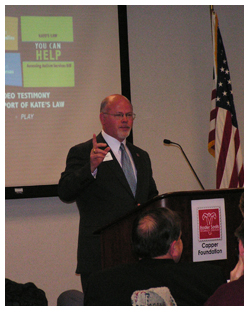Accessing autism services after age 21
by Patricia Wright
A parent commented to the Easter Seals autism blog last week — she was asking for help for her son. He is an adult with autism, and he has aggressive tendencies.
The needs for services and supports for adults with autism is a growing crisis. Entitlement services typically end at age 21. The parent who commented has a son who is 22 years old, and accessing appropriate service and supports becomes increasingly more challenging after age 21.
Maybe there is hope now with the new administration. Changes in the White House mean there are also changes on the disability section of the White House Web site. The site now details the new administration’s commitment to families with autism.
President Obama and Vice President Biden are committed to supporting Americans with Autism Spectrum Disorders (“ASD”), their families, and their communities.
From there it lists the specifics, including
President Obama and Vice President Biden support improving life-long services for people with ASD for treatments, interventions and services for both children and adults with ASD.
In my work with children and adults with autism, I have found that parents of individuals with autism are often the most aware of useful services and supports. I encourage parents and caregivers to contact local support groups and engage in dialogue with other parents who may have been in a similar situation and found a solution. The Autism Society of America has a chapter locator which may be a good place to start.
One last thing — parents who have their children with autism still living with them as adults need to know that individuals with autism can learn to communicate effectively and do not have to resort to aggression towards themselves and others. Parents awaiting residential placement for their adult children can sometimes access behavioral health services to assist with their ability to communicate and reduce aggression. A brief description of Functional Communication Training might help. It is a shame that accessing services has been such a challenge for adults with autism. Here’s hoping things really do change.







 I started my morning last Wednesday with a visit to
I started my morning last Wednesday with a visit to